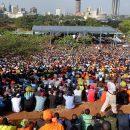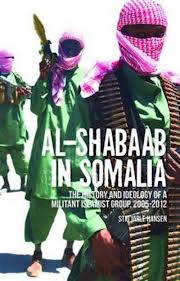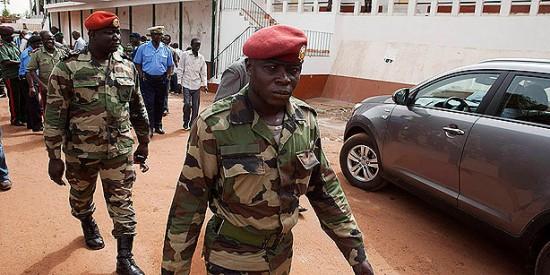The New Darfur Strategy: Part I by Dr. Ghazi Salahuddin
Twenty-one questions relating to the new Strategy were sent to Dr. Ghazi as basis for a pre-agreed Executive Interview over the phone. He will look into the questions and detailed replies, and where and when possible, his responses will be shared in a second interview. The first interview on Wednesday September 22nd, 2010 dealt with several generalities and explanations and with some critical issues of the backbone of the New Strategy.
The following is a summary of the views and positions of Dr. Ghazi (Edited and confirmed by him):
1- The claim that there is nothing new in the Strategy is unfair. The Strategy has reoriented priorities in a meaningful and implementable manner. It has put emphasis on critical issues to be dealt with. The concept of “Partnership” is new and is gaining momentum. It focuses on building confidence with the various players. The confrontational attitudes that existed in dealing with UNAMID for instance are changing to better understanding and cooperation. The Strategy is meant to be dynamic and as dynamic as the situation on the ground dictates.
2- As a Government, GOS now feel that they are setting the agenda and leading the initiative and not the External Stakeholders represented by the International and Regional Stakeholders.
3- The Strategy does not assume new architecture for its implementation. It will deal with the training, reorientation and capacity building of existing organizations “National and International” to deal with the implementation. This will eliminate the possible clash between new structures and existing ones that are currently doing a job. Humanitarian Affairs and Foreign Affairs are two important arms of the architecture.
4- Mediation and Doha were told in clear terms that there must be a Political Settlement before the end of the year. Otherwise there may be undesirable mess if the political settlement is not reached by the due date of the referendum.
5- GOS senses considerable support for the New Strategy. Both President Mbeki and Mr. Gambari are enthusiastic about it. The quadripartite meeting also brought in Gen Gration and others to see the possible value of the Strategy.
6- At the national level, most of the Movements that have signed agreements with GOS before see it as an opportunity to validate their agreements and status. The rank and file Darfurians are supportive. But there are those who are against the idea. Armed Movements and their immediate supporters are in that category.
7- While the EU looks like distant from the Strategy and dialogue over it, that may soon change. The EU’s position on the ICC may be responsible for their caution. However, dialogue is starting between GOS and Spain and Sweden. That may be a start and GOS does not have to deal with the EU as a block. However, the government will launch a dialogue with the EU in the near future.
8- Security has been singled out as top priority. Not in the violence and fighting sense, but security in the political sense. The situation on the ground is fragile and we need to reduce that fragility.
9- The next sub-strategy that will be developed will be on the sensitive issue of the IDPs, their needs and their return to their original homes. GOS does not wish to rush this pillar of the Strategy and is conducting wide-based consultations. The views and aspirations of the IDPs are being sought and considered. The diversity in their needs and wishes shall be evaluated.
10- There shall be need to strengthen the “Intellectual Input” into such sub-strategy. While there are national organizations that may deal with some aspects of such a sub-strategy and do groundwork, the sensitivity of the issue and the possible backlashes make it essential to have a robust and fool-proof sub-strategy.
11- While implementation concerns do not need to be addressed now, they must be carried in the thinking towards the sub-strategy so that it is developed to be doable and implementable.
12- This is an area that shall be of considerable concern and interest for the INGOs. Their positive participation and contribution in developing the sub-strategy shall be sought and valued.
13- All the delicate issues needing criteria such as “voluntary return”, “original homes” “what compensation”, best options and interests of the groups of IDPs shall be considered and properly weighted into the sub-strategy.







From the new attacks in Jebel Marra, it appears that the “New Strategy” involves renewed GoS attacks on Darfuri villages and civilians in Jebel Marra, renewed mass displacement and denial of humanitarian aid while calling for disbanding IDP camps. Is the GoS really a credible arbiter of any “strategy”?
Dear Sharon
The matter of fact is that the strategy is there. The GOS are dead serious about it. The security sub-strategy has been developed and is under implementation. The IDPs sub-strategy is under formulation as we speak. I believe that it will be the real “linchpin” of GOS activities between now and January 9th 2011.
The 10 pages strategy was not properly read nor weighted. It is far reaching and GOS has managed to gather considerable endorsement of it including the AU, UN, LAS, Thabo Mbeki, Scott Gration and the US. They have managed to allocate $1.9 bill for its implementation in phase I.
The interview that I did from Ottawa by teleconference/e-mail was meant to throw light on the document. Unless Alex and the Blog post the complete interview of our Part II in which Dr. Ghazi answered important 21 questions, we may not complete the picture.
Our intention was not really to assess the credibility of GOS, but to focus attention on the New Strategy so that it is not underestimated, under-rated or lightly dismissed as many are doing. With the Strategy, we do have a new reality that may be very unfortunate for the peoples of Darfur.
The big question is: Is anybody with muscle and power REALLY caring?